1770 Born: Ludwig van Beethoven, composer (d. 1827)
Ludwig van Beethoven (baptized 17 December 1770 – 26 March 1827) was a German composer and pianist. A crucial figure in the transition between the classical and romantic eras in classical music, he remains one of the most recognized and influential musicians of this period, and is considered to be one of the greatest composers of all time.
Beethoven was born in Bonn, the capital of the Electorate of Cologne, and part of the Holy Roman Empire. He displayed his musical talents at an early age and was vigorously taught by his father Johann van Beethoven, and was later taught by composer and conductor Christian Gottlob Neefe. At age 21, he moved to Vienna and studied composition with Joseph Haydn. Beethoven then gained a reputation as a virtuoso pianist, and was soon courted by Prince Lichnowsky for compositions, which resulted in Opus 1 in 1795.
The piece was a great critical and commercial success, and was followed by Symphony No. 1 in 1800. This composition was distinguished for its frequent use of sforzandi, as well as sudden shifts in tonal centers that were uncommon for traditional symphonic form, and the prominent, more independent use of wind instruments. In 1801, he also gained notoriety for his six String Quartets and for the ballet The Creatures of Prometheus. During this period, his hearing began to deteriorate, but he continued to conduct, premiering his third and fifth symphonies in 1804 and 1808, respectively. His condition worsened to almost complete deafness by 1811, and he then gave up performing and appearing in public.
During this period of self exile, Beethoven composed many of his most admired works; his seventh symphony premiered in 1813, with its second movement, Allegretto, achieving widespread critical acclaim. He composed the piece Missa Solemnis for a number of years until it premiered 1824, which preceded his ninth symphony, with the latter gaining fame for being among the first examples of a choral symphony. In 1826, his fourteenth String Quartet was noted for having seven linked movements played without a break, and is considered the final major piece performed before his death a year later.
His career is conventionally divided into early, middle, and late periods; the "early" period is typically seen to last until 1802, the "middle" period from 1802 to 1812, and the "late" period from 1812 to his death in 1827. During his life, he composed nine symphonies; five piano concertos; one violin concerto; thirty-two piano sonatas; sixteen string quartets; two masses; and the opera Fidelio. Other works, like Für Elise, were discovered after his death, and are also considered historical musical achievements. Beethoven's legacy is characterized for his innovative compositions, namely through the combinations of vocals and instruments, and also for widening the scope of sonata, symphony, concerto, and quartet, while he is also noted for his troublesome relationship with his contemporaries.
Stamps from Germany and Monaco featuring Beethoven
1775 Born: Jane Austen, English novelist (d. 1817)
Jane Austen (16 December 1775 – 18 July 1817) was an English novelist known primarily for her six major novels, which interpret, critique and comment upon the British landed gentry at the end of the 18th century. Austen's plots often explore the dependence of women on marriage in the pursuit of favorable social standing and economic security. Her works critique the novels of sensibility of the second half of the 18th century and are part of the transition to 19th-century literary realism. Her use of biting irony, along with her realism, humor, and social commentary, have long earned her acclaim among critics, scholars, and popular audiences alike.
With the publications of Sense and Sensibility (1811), Pride and Prejudice (1813), Mansfield Park (1814) and Emma (1816), she achieved success as a published writer. She wrote two additional novels, Northanger Abbey and Persuasion, both published posthumously in 1818, and began another, eventually titled Sanditon, but died before its completion. She also left behind three volumes of juvenile writings in manuscript, a short epistolary novel Lady Susan, and another unfinished novel, The Watsons. Her six full-length novels have rarely been out of print, although they were published anonymously and brought her moderate success and little fame during her lifetime.
A significant transition in her posthumous reputation occurred in 1833, when her novels were republished in Richard Bentley's Standard Novels series, illustrated by Ferdinand Pickering, and sold as a set. They gradually gained wider acclaim and popular readership. In 1869, fifty-two years after her death, her nephew's publication of A Memoir of Jane Austen introduced a compelling version of her writing career and supposedly uneventful life to an eager audience.
Austen has inspired many critical essays and literary anthologies. Her novels have inspired many films, from 1940's Pride and Prejudice to more recent productions like Sense and Sensibility (1995), Emma (1996), Mansfield Park (1999), Pride & Prejudice (2005), and Love & Friendship (2016).
Stamps from Great Britain featuring Austen's works
1790 Born: Leopold I of Belgium (d. 1865)
Leopold I (16 December 1790 – 10 December 1865) was a German prince who became the first King of the Belgians following the country's independence in 1830. He reigned between July 1831 and December 1865.
Born into the ruling family of the small German duchy of Saxe-Coburg-Saalfeld, Leopold took a commission in the Imperial Russian Army and fought against Napoleon after French troops overran Saxe-Coburg during the Napoleonic Wars. After Napoleon's defeat, Leopold moved to the United Kingdom where he married Princess Charlotte of Wales, who was second in line to the British throne and the only legitimate child of the Prince Regent (the future King George IV). Charlotte died after only a year of marriage, but Leopold continued to enjoy considerable status in Britain.
After the Greek War of Independence (1821–32), Leopold was offered the crown of Greece but turned it down, believing it to be too precarious. Instead, Leopold accepted the kingship of the newly established Kingdom of Belgium in 1831. The Belgian government offered the position to Leopold because of his diplomatic connections with royal houses across Europe, and because as the British-backed candidate, he was not affiliated with other powers, such as France, which were believed to have territorial ambitions in Belgium which might threaten the European balance of power created by the 1815 Congress of Vienna.
Some Leopold I stamps from Belgium
1859 Died: Wilhelm Grimm, German anthropologist and author (b. 1786)
Wilhelm was born in Hanau, in Hesse-Kassel. In 1803, he started studying law at the University of Marburg, one year after his brother Jacob started there. The two brothers spent their entire lives close together. In their school days, they had one bed and one table in common; as students, they had two beds and two tables in the same room. They always lived under one roof and had their books and property in common.
In 1825, 39-year-old Wilhelm married pharmacist's daughter Henriette Dorothea Wild, also known as Dortchen. Wilhelm's marriage did not change the harmony of the brothers. Richard Cleasby visited the brothers and observed, “they both live in the same house, and in such harmony and community that one might almost imagine the children were common property.” Wilhelm and Henriette had four children together: Jacob (3 April 1826 – 15 December 1826), Herman Friedrich (6 January 1828 – 16 June 1901), Rudolf Georg (31 March 1830 – 13 November 1889), and Barbara Auguste Luise Pauline Marie (21 August 1832 – 9 February 1919).
Wilhelm's character was a complete contrast to that of his brother. As a boy, he was strong and healthy, but while growing up he suffered a long and severe illness which left him weak the rest of his life. He had a less comprehensive and energetic mind than his brother, and he had less of the spirit of investigation, preferring to confine himself to some limited and definitely bounded field of work. He utilized everything that bore directly on his own studies and ignored the rest. These studies were almost always of a literary nature.
Wilhelm took great delight in music, for which his brother had but a moderate liking, and he had a remarkable gift of story-telling. Cleasby relates that “Wilhelm read a sort of farce written in the Frankfort dialect, depicting the ‘malheurs’ of a rich Frankfort tradesman on a holiday jaunt on Sunday. It was very droll, and he read it admirably.” Cleasby describes him as “an uncommonly animated, jovial fellow.” He was, accordingly, much sought in society, which he frequented much more than his brother.
A collection of fairy tales was first published in 1812 by the Grimm brothers, known in English as Grimms' Fairy Tales.
From 1837–1841, the Grimm brothers joined five of their colleague professors at the University of Göttingen to form a group known as the Göttinger Sieben (The Göttingen Seven). They protested against Ernest Augustus, King of Hanover, whom they accused of violating the constitution. All seven were fired by the king.
Wilhelm Grimm died in Berlin of an infection at the age of 73.
Stamps from Germany, East Germany and Berlin featuring the Grimm brothers or their fairy tales
1922 – President of Poland Gabriel Narutowicz is assassinated by Eligiusz Niewiadomski at the Zachęta Gallery in Warsaw.
Gabriel Narutowicz (17 March 1865 – 16 December 1922) was a Polish professor of hydroelectric engineering and politician who served as the 1st President of Poland from 11 December 1922 until his assassination on 16 December, five days after assuming office. He previously served as the Minister of Public Works from 1920 to 1921 and briefly as Minister of Foreign Affairs in 1922. A renowned engineer and politically independent, Narutowicz was the first elected head of state following Poland's regained sovereignty from partitioning powers.
Born into a noble family with strong patriotic sentiment, Narutowicz studied at the University of St. Petersburg before relocating to Zurich Polytechnic and completing his studies in Switzerland. An engineer by profession, he was a pioneer of electrification and his works were presented at exhibitions across Western Europe. Narutowicz also directed the construction of the first European hydroelectric power plants in Monthey, Mühleberg and Andelsbuch. In 1907 he was nominated a professor of hydroelectric and water engineering in Zurich, and was subsequently assigned in maintaining the Rhine. In September 1919 Narutowicz was invited by the Polish authorities in rebuilding the nation's infrastructure after devastation caused by World War I. On 23 June 1920 Narutowicz became the Minister of Public Works in Władysław Grabski’s government. Following his successful conduct of the Polish delegation at the Genoa Conference, on 28 June 1922 he became the Minister of Foreign Affairs in Artur Śliwiński’s cabinet.
During the elections in 1922, Narutowicz was supported by the center-left, most notably the Polish People's Party "Wyzwolenie", and by national minorities, but gained harsh criticism from the right wing National Democrats. Far-right zealots, ultra-Catholic unions and nationalists targeted him for sympathy towards Polish Jews. Upon defeating the other candidate, Maurycy Zamoyski, Gabriel Narutowicz was elected the first president of the Second Polish Republic. After only five days in office he was assassinated by oppositionist Eligiusz Niewiadomski while viewing paintings at the Zachęta Art Gallery. His funeral, attended by almost 500,000 people, was simultaneously a manifestation of peace which diminished the power of the far-right movement in the upcoming years. Narutowicz was buried with honors on 22 December 1922 in the vault of St. John's Cathedral in Warsaw.
Narutowicz was a non-practicing Catholic and an active Freemason; he participated in rituals throughout the whole country.
Stamps from Poland featuring Narutowicz
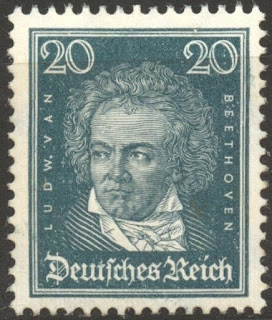

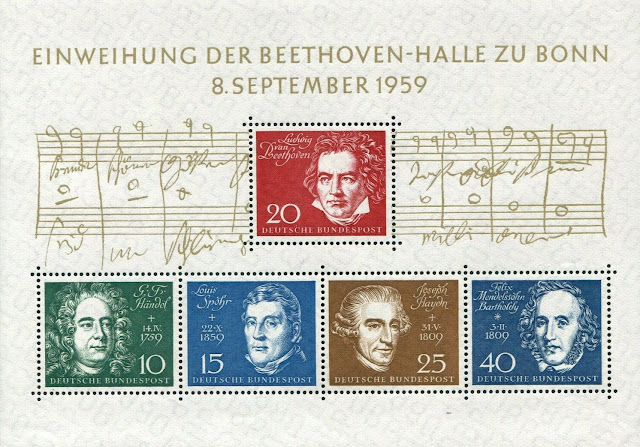
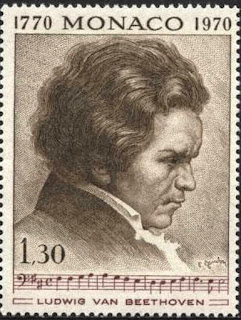

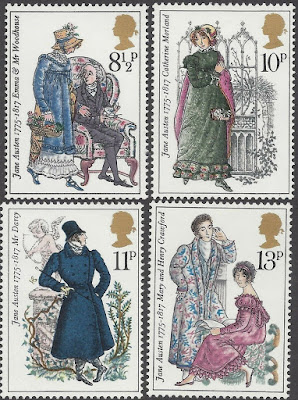
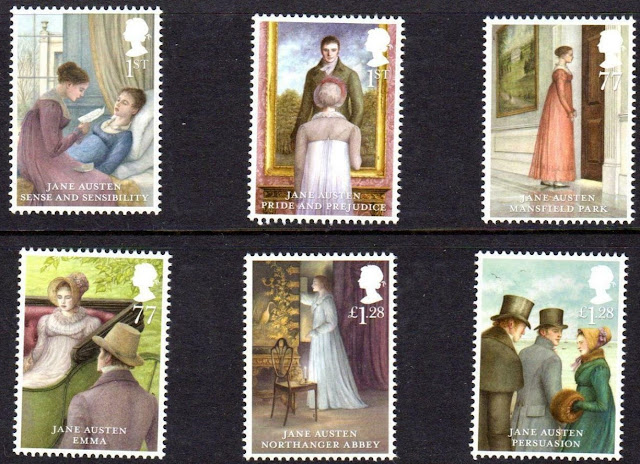
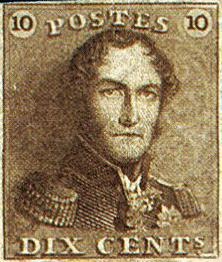



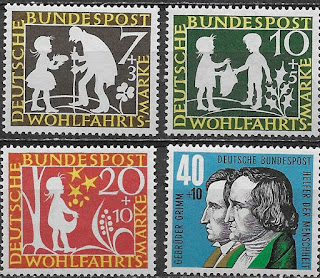





No comments:
Post a Comment